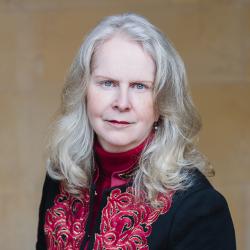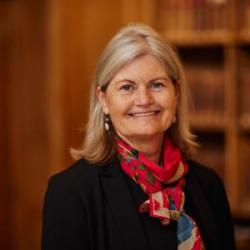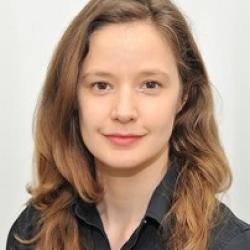British Academy Global Professorship: Addressing the Digital Realm through the Grammar of Human Rights Law
Speaker(s):
Associated with:
Notes & Changes
Registration for this conference has now closed.
The British Academy Global Professorship project on “Addressing the Digital Realm through the Grammar of Human Rights Law” started in 2020 and is led by Professor Martin Scheinin. During the course of the project, Professor Scheinin and postdoctoral fellows Oliver Butler and Richard Mackenzie-Gray Scott have conducted research into different aspects of the relationship between human rights law and digital technologies, including in collaboration with several external researchers. The project has also involved four workshops on thematic issues, respectively freedom of expression and content moderation, algorithmic discrimination, privacy and digitalized modes of surveillance, and the right to democracy and democratic participation in the digital age.
This conference will be the final event of the project, which is scheduled to end in February 2025. It will include keynote addresses, presentations and external expert assessments of the main strands of research within the project, as well as thematic sessions that will focus on research jointly conducted with external postdoctoral researchers. As some of the key outputs of the research will then be at manuscript stage, discussions during the conference will contribute to shaping the final publications.
Draft Programme
Wednesday, 25 September 2024
10.00 Opening of the conference, prof. Kate O’Regan, Director of the Bonavero Institute of Human Rights
10.15 The Grammar of International Human Rights Law and the Digital Realm, prof. Martin Scheinin
10.45 Expert commentator: prof. Lorna McGregor
11.15 Keynote address by prof. Robert Spano, former President of the European Court of Human Rights: Can Human Rights Law Cope with the Digital Challenge
12.00 General discussion
Lunch for all participants, Mansfield College
13.30 Procedures and systems for protecting human rights in an era of data-fixation, Dr Richard Mackenzie-Gray Scott
14.00 Expert commentator: Dr Neli Frost
14.30 Coffee/tea break
15.00 Thematic session on freedom of expression with Dr Tarik Gherbaoui, Dr Julia Haas, Katie Pentney, and Eliska Pirkova
16.00 Thematic session on equality and non-discrimination with Dr Tanya Krupiy and prof. Yasmin Curzi
17.00 Keynote address by prof. Luca Belli: Peoples and communities as agents of digital self-determination
17.45 Closing discussion
Dinner for all participants, Mansfield College
Thursday, 26 September 2024
9.00 Transforming European Privacy and Data Protection Law, Dr Oliver Butler
9.30 Expert commentator: prof. Orla Lynskey
10.00 Thematic session on the right to privacy with Dr Sophie Duroy and Dr Monika Zalnieriute
10.45 Coffee/tea break
11.00 Thematic session on the right to health and other economic, social and cultural rights with Dr Helga Molbaek-Steensig and Natalia Menendez Gonzales
11.45 Keynote address by Dr Susie Alegre: Humanity in the Age of AI
12.45 Final words by Prof. Martin Scheinin
Speakers
In August 2020, Professor Martin Scheinin joined the Bonavero Institute of Human Rights as a British Academy Global Professor. His research project “Addressing the Digital Realm through the Grammar of Human Rights Law” will run for four academic years (2020-2024).
Professor Scheinin joined the Bonavero Institute from the European University Institute where he has been Professor of International Law and Human Rights since 2008. He is the author of numerous books and articles concerning international and European human rights law, international courts and tribunals, the law of treaties, as well as comparative constitutional law. He was the leader of the EU-funded research project SURVEILLE that in 2012-2015 developed a multidisciplinary methodology to assess holistically the security benefits, cost efficiency, moral harm and human rights intrusion of a wide range of surveillance technologies, including those employed in relation to the threat of terrorism. Besides his academic expertise, Professor Scheinin will brings to the Bonavero Institute his extensive experience in the practice of human rights law, having served on the United Nations Human Rights Committee (1997-2004), as UN Special Rapporteur on human rights and counter-terrorism (2005-2011) and as a member of the Scientific Committee of the EU Fundamental Rights Agency (since 2018).
The project will also address a range of interconnected challenges related to the exponential growth of information created, communicated, stored and exploited in electronic and overwhelmingly digitised form. These challenges are societal, and they have distinct and important legal dimensions that will be addressed in respect of human rights law through one overarching research question: Is human rights law, as it has developed within the post-1945 conceptual framework, capable of addressing the major challenges that characterize the current digital information age. The programme of work will convene a series of annual workshops between conceptual thinkers, experts and policy-makers and result in several journal articles across its wide range of sub-themes, culminating in a final conference and an academic monograph in 2024. The research examines whether both the moral principles underpinning human rights law and existing human rights law are capable of addressing the new and emerging challenges concerning the digital realm. The research project includes a focus on some of the human rights issues that arise from state responses to the current COVID-19 global pandemic, in particular questions relating to digital surveillance, privacy and discrimination.

Dr Richard Mackenzie-Gray Scott is Postdoctoral Fellow at the Bonavero Institute of Human Rights and St Antony’s College, where his research is funded by the British Academy. He also holds a visiting professorship at the Center for Technology and Society in the Getulio Vargas Foundation, Rio de Janeiro. He previously worked at the Bingham Centre for the Rule of Law, part of the British Institute of International and Comparative Law, where he was a research fellow and a member of its equality, diversity and inclusion committee.
Richard has provided evidence to the Scottish Government, the UK Government, and the UK Parliament, and has worked on cases before the United Nations High Commissioner for Refugees, the International Centre for Settlement of Investment Disputes, the London Court of International Arbitration, the UK Supreme Court, and the Court of Appeal. He also served on the International Bar Association’s Human Rights Institute Task Force on Drones.
His research has been published in leading peer-reviewed journals, including the International Journal of Law & Information Technology, the International & Comparative Law Quarterly, Art, Antiquity & Law, the Leiden Journal of International Law, and the Journal of Conflict & Security Law, and reported on in the press, including newspapers such as The Herald and The Times, as well as being referred to by the International Committee of the Red Cross, the North Atlantic Treaty Organization Cooperative Cyber Defence Centre of Excellence, and the Public Administration and Constitutional Affairs Committee of the UK Parliament. He has also written for Prospect Magazine, Tech Policy Press, and Verfassungsblog, among other outlets.
He is the author of State Responsibility for Non-State Actors: Past, Present and Prospects for the Future (2022) – re-issued in paperback (2024).

Dr Oliver Butler joined the School of Law as an Assistant Professor in Law in September 2021. He read law at the University of Cambridge, graduating in 2010. He received a Distinction on the BCL at the University of Oxford in 2011, where he was the Supperstone Law Scholar and received the Faculty Prize in Constitutional Theory. He graduated from the LLM at Harvard Law School in 2012, which he attended on a Herchel Smith Scholarship. He received the Princess Royal Scholarship from Inner Temple and was called to the Bar of England and Wales in 2013. Oliver then worked at the Law Commission of England and Wales as a research assistant on the Data Sharing between Public Bodies project, which published its report in 2014. Oliver returned to the University of Cambridge for his PhD funded by the AHRC, on the development of information law in the UK and Europe, which he completed in 2018. From 2017 to 2021, he was a fixed-term Fellow at Wadham College, University of Oxford, jointly with a research fellowship at the Bonavero Institute of Human Rights. During that time, he taught constitutional, administrative and human rights law on the BA and BCL and researched emerging digital rights.

Robert Spano is a partner in the London and Paris offices and the co-chair of the firm’s Artificial Intelligence Practice Group. He practices in the field of EU litigation, international dispute resolution and advises on regulatory matters. He is a member of the Transnational Litigation, International Arbitration, Environmental, Social and Governance (ESG), Privacy, Cybersecurity and Data Innovation, Technology Regulatory and Litigation, and Public Policy Practice Groups.
He is a leading expert in public international law, business and human rights, EU law and the law of the European Convention on Human Rights, bringing unparalleled experience from senior roles in the judiciary, private practice and academia.
Robert is listed in the 2025 edition of Best Lawyers in the United Kingdom as a leading lawyer for Human Rights and Public International Law. He is also recognised by The Legal 500 UK 2024 for International Arbitration and Public International Law and was named to both to the 2024 Lawdragon’s 100 Leading AI & Legal Tech Advisors and 500 Leading Global Cyber Lawyers lists.
He is the former president of the European Court of Human Rights, the youngest judge ever to be elected to the presidency in the Court’s 60 year history. When leaving the Court his colleagues published a Liber Amicorum in his honour stating that ‘during his term as president he demonstrated exceptional leadership qualities, showing creativity and imagination in improving the functioning of the Strasbourg institution”.
Robert sits on the Panel of Arbitrators and Conciliators of the World Bank’s International Centre for Settlement of Investment Disputes (ICSID), and is an honorary bencher of the Middle Temple.
Recent and ongoing representations include:
Artificial Intelligence, EU Platform Regulation/Compliance and EU Litigation
- Lead counsel for a multinational company in a judicial review action before the Court of Justice of the European Union under the EU’s Digital Services Act.
- Advising a global online platform on regulatory compliance in the implementation of the EU’s Digital Services Act.
- Advising a multinational company on the intersection between artificial intelligence and fundamental rights under EU law.
- Advising a multinational company on the interplay between the EU AI Act and the GDPR (‘General Data Protection Regulation’).
- Advising a multinational company on AI governance and the use of generative AI in product development.
- Advising a multinational company in the EU consumer protection field on access to documents before national authorities and the European Commission.
International Arbitration, Public International law, the European Convention on Human Rights, Climate Change law and Business and Human Rights (ESG)
- Counsel for the defendant in an international commercial arbitration in the aluminium and energy sectors.
- Provided an independent expert opinion in enforcement proceedings under the ICSID-Convention.
- Provided an independent expert opinion in an ongoing dispute between Sovereign States under public international law and international human rights law.
- Advising a sovereign state in the establishment of a new international treaty-based organisation for the promotion of regional economic and environmental collaboration.
- Advising a multinational company on fundamental rights issues under the European Convention on Human Rights in competition proceedings before the German national courts.
- Advising a multinational company on fundamental rights issues under the European Convention on Human Rights in proceedings under data protection law in France.
- Advising a multinational finance institution on its rights under the European Convention on Human Rights in criminal proceedings before the French national courts.
- Advising the National Power Company of Iceland (Landsvirkjun) on its compliance with the minimum safeguards criteria of the EU Taxonomy Regulation.
- Advising multinational companies on disclosures under the Corporate Sustainability Reporting Directive (CSRD).
- Advising multinational companies on business and human rights obligations under EU law and international human rights law.
- Advising a multinational company in the field of climate change litigation.
- Advising a multinational company on the legal status of its employees resident in a third-state under international human rights law.
- Drafted a report, at the request of the Prime Minister of Iceland, on amendments to the human rights chapter of the Constitution of the Republic of Iceland.
Robert is a visiting professor of law at the University of Oxford and also serves part-time as a tenured professor of law at the University of Iceland, where he served as dean of the faculty before being elected to the international judiciary.
Robert graduated with a Magister Juris Degree in European and Comparative Law from the University of Oxford where he was awarded the Clifford Chance Prize (proxime accessit) and the Civil Procedure Prize for his scholastic achievements. Prior to his studies at Oxford, he studied international trade law and EU law at the University of Leuven, Belgium, and graduated with a Candidatus Juris Degree from the Faculty of Law, University of Iceland.
Robert is admitted to the Icelandic Bar (EEA lawyer) and is a registered foreign lawyer in the United Kingdom.
He is fluent in English, French, Italian, Danish and is a native Icelandic speaker.
Professional activities and pro-bono service
-
Member, Board of the Register of Damage for Ukraine.
- Arbitrator, ICSID Panel of Arbitrators and Conciliators, World Bank.
- President of the Board of Patrons, Gender Champions in the Judiciary Network.
- Visiting Fellow, Mansfield College, Oxford.
- Member, Board of the Academy of International Affairs (NRW), Bonn.
- Patron, ELSA (European Law Student’s Association) Law Review.
- Member, Advisory Board, ECHR Law Review.
- Member, Advisory Board, School of Law and Social Justice, University of Liverpool.

Dr Luca Belli is Professor of Digital Governance and Regulation at Fundação Getulio Vargas (FGV) Law School, Rio de Janeiro, where he directs the Center for Technology and Society (CTS-FGV) and the CyberBRICS project. Luca is also editor of the International Data Privacy Law (IDPL) Journal, published by Oxford University Press, and Director of the Computers Privacy and Data Protection conference Latin-America (CPDP LatAm). He is currently member of the Brazilian Presidency’s National Cybersecurity Committee, board member of the Global Digital Inclusion Partnership and member of the Steering Committee of the Forum for Information & Democracy. He is author of more than 80 publications on law and technology, exploring data governance, cybersecurity, AI regulation, Internet access, and digital transformation. He has been consulted by several intergovernmental organisations and national regulators, including the Council of Europe, the International Telecommunications Union, the French Telecoms Regulator, etc. and his works have been quoted by numerous media outlets, including The Economist, Financial Times, Forbes, Le Monde, BBC, China Today, The Beijing Review, The Hill, O Globo, Folha de São Paulo, El Pais, etc. Luca holds a PhD in Public Law from Université Paris Panthéon-Assas and can be found on LinkedIn and on Twitter as @1lucabelli

Dr Susie Alegre – is an international lawyer specialising in tech policy, human rights and ethics. She is the author of Human Rights, Robot Wrongs: Being Human in the Age of AI (Atlantic Books, 2024) and Freedom to Think, a Financial Times Technology Book of the Year 2022. She is also a Senior Fellow at the Centre for International Governance Innovation.
A barrister with a Masters in French and Philosophy and a PhD in International Human Rights Law she has in depth insights into the law and ethics as they apply to emerging technology. She has advised companies, governments, international organisations, investors and civil society on the implications of technology for society.
Her experience in international diplomacy including work on security and counter-terrorism and human rights in the OSCE region and work on accountability, governance and anti-corruption chairing the international donor working group for the EU in Uganda gives her a unique perspective on global issues affecting the tech industry. And her experience as a Financial Ombudsman and as Interception of Communications Commissioner (Isle of Man) alongside other judicial and dispute resolution roles in the UK and internationally has given her a practical perspective on the regulatory and oversight landscape.
Adept in bringing complex issues to a wide audience, she is a regular contributor to national and international press including the Financial Times, TIME Magazine, BBC Radio 4, Sky News, the Sydney Morning Herald, The Daily Telegraph, Prospect Magazine, Perspective Magazine, The Irish Times and City AM among others. She featured in The Cost of Convenience, a documentary film about the technology and society. Susie is a regular keynote speaker, panellist and TEDx speaker

Kate O'Regan is the inaugural Director of the Bonavero Institute of Human Rights and a former judge of the South African Constitutional Court (1994 – 2009). In the mid-1980s she practiced as a lawyer in Johannesburg in a variety of fields, but especially labour law and land law, representing many of the emerging trade unions and their members, as well as communities threatened with eviction under apartheid land laws. In 1990, she joined the Faculty of Law at UCT where she taught a range of courses including race, gender and the law, labour law, civil procedure and evidence. Since her fifteen-year term at the South African Constitutional Court ended in 2009, she has amongst other things served as an ad hoc judge of the Supreme Court of Namibia (from 2010 - 2016), Chairperson of the Khayelitsha Commission of Inquiry into allegations of police inefficiency and a breakdown in trust between the police and the community of Khayelitsha (2012 – 2014), and as a member of the boards or advisory bodies of many NGOs working in the fields of democracy, the rule of law, human rights and equality.

Dr Neli Frost is a Massada Junior Research Fellow at Worcester College at the University of Oxford. She was previously a Hauser Global Fellow at New York University School of Law. Her research and teaching interests include international law and global governance, with a thematic focus on international legal theory and democratic jurisprudence in the context of the intersections between law and technology. Neli received her Ph.D. from the University of Cambridge in 2022, and holds an LLM, an LLB, and a BA in East Asian Studies from Tel-Aviv University. Her research to date has centered on the hazards that Big Tech companies pose to the infrastructures of democratic governance (I•CON, forthcoming; NYU J. Int’l L. & Pol., forthcoming), and on the regulatory roles performed by transnational corporations in the field of human rights (EJIL 2021). During her time at Cambridge Neli supervised International Law for undergraduates, taught LLM workshops on international human rights and the law of global governance, and was an Associate Editor of the British Yearbook of International Law.

Tarik Gherbaoui is a researcher in international law at the Asser Institute where he contributes to several projects in the context of the Global Counterterrorism Forum (GCTF). Tarik holds a PhD in Law from the European University Institute in Florence, a Master of Laws degree from the University of Cambridge (Sidney Sussex College), and a Bachelor of Laws degree (cum laude) from the University of Amsterdam, including an exchange to the University of Copenhagen.
With the research strand ‘In the public interest: accountability of the state and the prosecution of crimes’, Tarik’s main research interests are focused on international and European efforts to counter terrorism. His doctoral research, under the supervision of Professor Martin Scheinin, investigated international and domestic legal responses to foreign fighters. Tarik was a visiting researcher at the Law Department at the London School of Economics and Political Sciences (LSE), the Institute of Advanced Legal Studies (IALS) in London, and the Faculty of Law of the University of Vienna. During the academic year 2019-2020, Tarik was awarded a ‘re:constitution Fellowship’ by the Forum Transregionale Studien in Berlin to conduct a research project on the deprivation of citizenship in the counter-terrorism context. Furthermore, he presented his academic work at various international venues, including at a Global Counterterrorism Forum Workshop, the University of Cambridge, the University of Oxford, the LSE, King’s College London, Bocconi University, and Utrecht University. He serves as a senior (external) editor of the European Journal of Legal Studies.
Tarik acquired professional experience at the European External Action Service (EEAS) in Brussels and the Embassy of the Netherlands to Serbia and to Montenegro in Belgrade, the Defence Team of Jovica Stanišic at the International Criminal Tribunal for the Former Yugoslavia, and several international law firms in Amsterdam and London.

Julia Haas is Adviser to the OSCE Representative on Freedom of the Media. Julia is an international law and human rights expert who has focused on international relations, the intersection of technology and human rights, and the prevention of marginalization. At the OSCE, she leads the work on healthy online information spaces, focusing on policy research and development in the field of internet governance and digital participation, with a particular emphasis on the impact of artificial intelligence on freedom of expression, digital and legal safety of journalists, gender and online pluralism. Previously, she worked as legal officer and human rights adviser at the Austrian Ministry for Foreign Affairs. Julia sits on the advisory board for the Vienna Forum for Democracy and Human Rights, and acts as judge at the Oxford University’s Price Media Law Moot Court. She holds a Master’s degree in Law from the University of Vienna, an Information and Media Law LLM and is a PhD candidate on the impact of digital innovations on freedom of the media. In 2023, she received the OSCE Gender Focal Point award.

Katie is a DPhil Candidate in Law at Oxford and a Visiting Fellow at the Centre for Human Rights and Legal Pluralism (McGill Faculty of Law, Canada). Supervised by Professor Martin Scheinin, her doctoral research focuses on government disinformation and freedom of expression, and on the capacity of traditional rights frameworks to respond to modern challenges.
Prior to her doctoral studies, Katie obtained an Advanced LL.M. in European and International Human Rights Law (summa cum laude) from Leiden University. Her LL.M. thesis, which analysed five forms of governmental interference with freedom of expression, was awarded the Max van der Stoel Human Rights Award 2021.
Katie has a J.D. from Osgoode Hall Law School (Toronto, Canada) and a Bachelor of Arts (Highest Honours) from Carleton University (Ottawa, Canada). She has worked for a number of years at the intersection of law and policy on issues ranging from access to information to sexual and gender based violence, from climate change to hate speech. Most recently, Katie worked with Global Legal Action Network on a climate change case brought by Portuguese children and young people against 33 Respondent States before the European Court of Human Rights.
She convenes the Bonavero Graduate Research Forum and is an Associate Editor on the Oxford University Commonwealth Law Journal. Katie was previously a Graduate Research Student in Residency at the Bonavero Institute for Human Rights, and worked as an RA, preparing freedom of expression training materials for use in higher education on a project with Dr Bettina Lange.

Eliška Pírková works as Senior Policy Analyst and the Global freedom of expression lead at Access Now, the international human rights organization that defends and extends digital rights of online users at risk around the world. As a member of the European Access Now team, she leads the work on freedom of expression, content governance and platform accountability. She is a human rights lawyer by education and training, with previous experience working for international organizations and as a legal researcher. She has acted as an independent expert for international organizations, including the Council of Europe’s Committee of Experts on Combating Hate Speech and Committee of Experts on Generative AI implications for Freedom of Expression (MSI-AI).

I have expertise in international human rights law, international humanitarian law and international criminal law. I am particularly interested in exploring what societal impact new technologies create and how the norms of public international law can remain relevant in light of technological developments. I have expertise in artificial intelligence, robotic and digital technologies. I enjoy carrying out interdisciplinary research.
I hold a Master of Laws with distinction in public international law from the London School of Economics and Political Science. I gained a Doctor of Philosophy in law from the University of Essex. I received funding from the Social Sciences and Humanities Research Council of Canada to carry out a postdoctoral fellowship at McGill University in Canada. Thereafter, I was a postdoctoral fellow at Tilburg University. I received internal funding for three consecutive years at Tilburg University. I have published with various publishers. Oxford University Press, University of Toronto, University of Melbourne, European University Institute in Florence, Elsevier and Brill among others feature my work. I acted as a peer reviewer for the following journals: Computer Law and Security Review, Melbourne University Law Review, European Journal of Law and Technology, Yearbook of Socio-Economic Constitutions, North East Law Review and New Explorations: Studies in Culture and Communication.

I am a Professor at the FGV Law School, Rio de Janeiro, where I coordinate its Diversity and Inclusion Program. I am also a researcher at FGV's Center for Technology and Society, Co-coordinator of the Dynamic Coalition on Platform Responsibility at the Internet Governance Forum from the United Nations, and Member of the Platform Governance Research Network Steering Committee. I'm also a practicing lawyer, registered in the OAB-RJ, acting as Vice-Chairwoman of the Commission for Freedom of Expression in the Digital World.
My areas of interest and expertise span human rights law, digital law, gender studies, and digital sociology. I've attained my PhD degree in Sociology at IESP-UERJ, which was partially funded by a CAPES scholarship, where I was also nominated for the FAPERJ Nota 10 scholarship for exceptional academic performance. My Master's Degree in Social Sciences was obtained from PUC-Rio in 2017, with the support of the CAPES scholarship. I received my bachelor's degrees, both in Law and Social Sciences, from FGV-Rio and had the enriching opportunity to spend an academic exchange period at the Université Sorbonne Paris-IV.
At present, I'm coordinating the "Digital Media and Conflict Prevention" project (2023-25) at FGV Law School, funded by the European Union. My professional experience includes roles as data analyst at the Public Policy Department from FGV-Rio (DAPP-FGV), consultant for the NGO Soul Sisters (São Paulo), and correspondent for the Stop Street Harassment NGO in Washington-DC.
I have also provided consulting services for international organizations such as the Deutsche Gesellschaft für Internationale Zusammenarbeit (GIZ) GmbH, Chayn and End CyberAbuse, and InternetLab/Revista Azmina for the development of the MonitorA (an observatory of political and electoral violence against candidates on social networks).
During my education, I had the opportunity to do a internship at CEJIL, where I worked on the "Trabalhadores da Fazenda Brasil Verde v. Brasil" case. This hands-on experience further deepened my commitment to the pursuit of human rights.
You will find most of my work in open access at my Lattes profile and here. Whether you're a student, an academic, a legal professional, or simply someone interested in these topics, I hope you'll find value in them.

Orla Lynskey joins UCL Laws as Professor of Law and Technology in September 2024. She is also a Visiting Professor at the College of Europe, Bruges where she co-teaches a course on the Law and Economics of Data Protection and Privacy. Previously, she was an Associate Professor at LSE Law School which she joined in 2012. Orla's research is concerned with the effective protection of fundamental rights and public values in the digital society. Her recent publications critically examine the legal implications of synthetic data and query the feasibility of complete and effective data protection. She is currently working on the balance between individual and collective interests in data governance mechanisms. Orla is an Editor of the Modern Law Review and joint Editor-in-Chief of International Data Privacy Law.

Dr Sophie Duroy joined the University of Essex in August 2023 as a lecturer in the School of Law. Her current research focuses on the mutual influence of international law and intelligence practice on one another. Her research interests span public international law, international human rights law, intelligence and security studies, and social science approaches to international law. Prior to her appointment at Essex, Sophie held a postdoctoral fellowship at the KFG Berlin-Potsdam research group 'The International Rule of Law: Rise or Decline?' and was a PhD researcher at the European University Institute. She has also worked as an analyst and project manager in the field of counterterrorism and taught French constitutional law at Sciences Po Paris. Her first book, The Regulation of Intelligence Activities under International Law, was published by Edward Elgar Publishing in the International Law series in May 2023.

Dr. Monika Zalnieriute is a Chief Researcher at the Lithuanian Centre for Social Sciences. She has just completed Australian Research Council DECRA project “AI- Decision Making, Privacy and Discrimination Laws” (2021-2024) and returned to Lithuania from UNSW Sydney, where she has spent last 6 years. Monika’s research on law and technology has been published widely by leading international journals, such as the Modern Law Review and American Journal of International Law. Her research has been drawn upon widely by scholars (730+ citations on Google Scholar; and 17600+ downloads on SSRN) and international organizations, such as the Council of Europe, World Bank, the European Parliament and WHO. Her work has been translated into Mandarin, Russian and German, and has also appeared in international media outlets, such as BBC and The Guardian. Monika is the co-editor of Money Power and AI (Cambridge University Press, 2023) and The Cambridge Handbook of Facial Recognition in the Modern State (Cambridge University Press, 2024). She is a keen long-distance runner and has finished her first marathon last year.

Helga Molbæk-Steensig is a postdoctoral researcher with the European University Institute and the ELOQUENCE AI project where she focuses on ethical and human rights-compliant AI. She has previously worked on contemporary pressure the European Court of Human Rights and on COVID-19 and human rights. Her research turned to AI through her work on judicial independence and the right to a fair trial. Her work has appeared among other outlets in OUP volumes, in the European Journal of International Law, the Leiden Journal of International Law, and the European Journal of Legal Studies.

Natalia Menéndez González is a PhD candidate at the European University Institute where she researches the proportionality within the use of Facial Recognition Technology. She is also a Research Associate at the Centre for a Digital Society, a visiting researcher at the Biometrics Law Lab of the Center for IT & IP Law at the KU Leuven Faculty of Law and Criminology, a co-founder of The DigiCon blog, and former vice-chair of the PhD students in AI Ethics research group. Her other research interests include AI Ethics, especially for Natural Language Processing and the intersection between ArtificiaI Intelligence and Democracy.



 Add to calendar
Add to calendar


